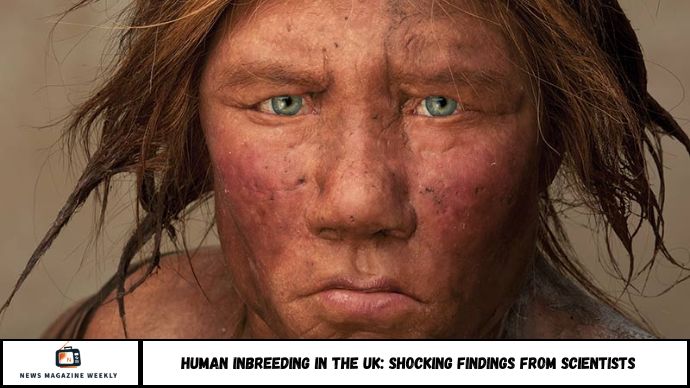What Scientists Found After Analyzing Human Inbreeding Cases in the UK
Human inbreeding, once a taboo subject, is now the focus of scientific research as scientists in the UK have begun studying its genetic impact. Inbreeding occurs when close relatives, such as cousins, parents, or siblings, have offspring together. While such occurrences were once considered rare, modern research has brought them into the spotlight, shedding light on the potential risks and genetic consequences.
But what did scientists uncover after carefully analyzing human inbreeding cases in the UK? The findings are both groundbreaking and concerning, revealing how inbreeding affects genetic diversity, raises health risks, and challenges public perceptions of human genetics.
In this article, we’ll dive deep into the findings of UK scientists and explore:
- The genetic risks of inbreeding
- Health conditions linked to inbreeding
- The social and legal implications of close-kin reproduction
What Is Inbreeding?
Inbreeding is the mating of closely related individuals. This can happen in human populations where family members with shared genes produce offspring. When this occurs, there is an increased likelihood that both parents will pass on the same genetic defects, which can lead to inherited diseases or health issues. While inbreeding does occur in many species, its effects are most pronounced in humans due to our complex genetic makeup.
The Findings from UK Research
Scientists in the UK analyzed data from historical and contemporary cases of inbreeding, particularly focusing on small rural populations where such practices were once more common. Here’s what they discovered:
1. Increased Risk of Genetic Disorders
- Recessive Genetic Diseases: Inbreeding increases the likelihood of recessive genetic disorders. For instance, rare inherited conditions like cystic fibrosis and sickle cell anemia are more likely to manifest in offspring if both parents carry the same recessive gene.
- Reduced Genetic Diversity: Inbreeding can significantly reduce genetic diversity, leading to a higher susceptibility to diseases and lower survival rates.
2. Health Conditions Linked to Inbreeding
- Congenital Birth Defects: Studies revealed that children born from inbreeding often have a higher incidence of congenital birth defects, including cleft palates, heart defects, and limb abnormalities.
- Lower Life Expectancy: The research found a clear correlation between inbreeding and reduced life expectancy, as the children often faced compromised immune systems or early health complications.
3. Long-term Genetic Damage
- Genetic Mutations: Over multiple generations, inbreeding can accumulate harmful genetic mutations. These mutations can affect mental and physical development, leading to conditions such as cognitive disorders and growth abnormalities.
- Increased Risk of Disorders like Schizophrenia: The research also noted that inbreeding may contribute to a higher prevalence of mental health disorders, including schizophrenia and other psychiatric conditions.
4. Social and Ethical Implications
- Legal Restrictions: In many countries, including the UK, there are laws prohibiting incest and close-kin marriages to avoid the risk of inbreeding. These laws are designed to protect individuals and communities from the harmful effects of close-kin reproduction.
- Cultural Taboos: While inbreeding has been practiced in some isolated communities, its social stigma persists. Cultural and societal taboos against inbreeding are rooted in the potential health risks and the need to maintain genetic diversity in human populations.
Health and Genetic Implications: Why It Matters
While inbreeding is a rare occurrence in the modern world due to strict social and legal frameworks, its genetic effects can still be felt in certain populations. Understanding the risks of inbreeding is crucial for public health, especially in communities where genetic disorders are prevalent.
Researchers emphasize the importance of genetic counseling and education to prevent harmful consequences in future generations. Early identification of genetic disorders, along with proper medical interventions, can help mitigate the impact of inbreeding.
FAQs
- What are the risks of human inbreeding?
Inbreeding increases the likelihood of genetic disorders, birth defects, and health complications due to reduced genetic diversity. - How does inbreeding affect future generations?
Repeated inbreeding can lead to accumulation of harmful mutations, impacting both physical and mental health in subsequent generations. - Are there legal restrictions against inbreeding?
Yes, most countries, including the UK, have laws prohibiting incest and close-kin marriages due to the risks associated with inbreeding. - Can inbreeding cause cognitive disorders?
Studies show that inbreeding increases the risk of cognitive disorders such as schizophrenia, learning disabilities, and other mental health issues. - What is genetic counseling, and why is it important?
Genetic counseling helps individuals understand their risk of passing on genetic conditions, offering support in making informed decisions about reproduction. - Has inbreeding declined in modern society?
Yes, strict social norms, laws, and health education have dramatically reduced the occurrence of inbreeding in most societies.
Conclusion
While inbreeding remains a rare occurrence, its effects on human health are far-reaching. Understanding the risks associated with inbreeding is essential for protecting future generations from genetic disorders and ensuring a healthy, diverse gene pool. The findings from UK scientists offer invaluable insights into the dangers of inbreeding and emphasize the need for genetic counseling and education in reducing its occurrence.

